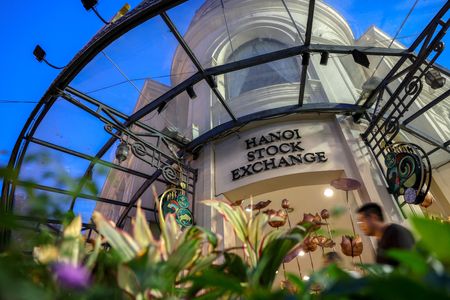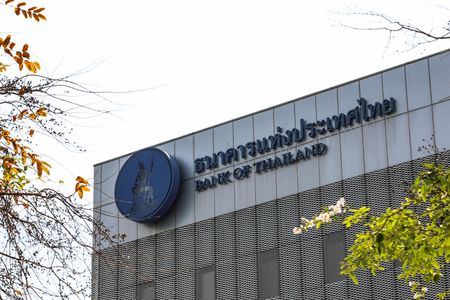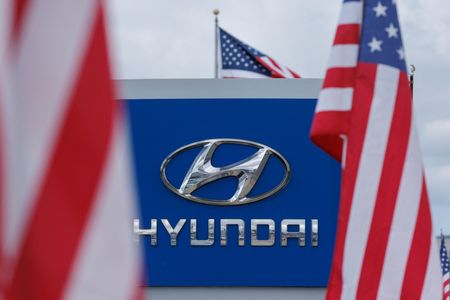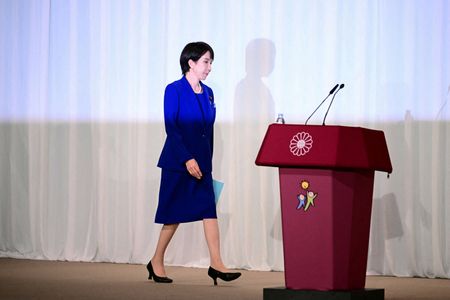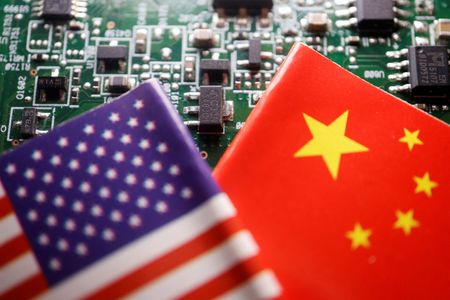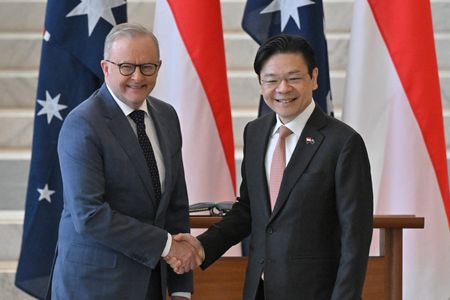By Phuong Nguyen and Ankur Banerjee
HANOI (Reuters) -Vietnam’s benchmark stock index hit a record high on Wednesday as the government and investors alike welcomed FTSE Russell’s announcement that the country was set to be upgraded to emerging market status.
The upgrade from frontier market status – a designation that prevents many passive funds from buying shares of locally listed companies – is expected to unlock billions of dollars in foreign investment as well as boost its IPO market.
It puts Vietnam on par with markets like India and China and follows market-friendly reforms by the Communist-ruled Southeast Asian country.
The decision is “a milestone for the Vietnamese market … opening the door for a new phase of development,” Vietnam’s State Securities Commission said in a statement.
The Ho Chi Minh stock index climbed 2% in early trade to hit a record of 1,735, though it later pared some of those gains and was last up 1%.
It is up by a third for the year to date – the best-performing stock market in Southeast Asia by a wide margin – powered by a huge surge in bank lending, recent IPOs and plans for listings as well as expectations of the FTSE Russell announcement which had been flagged by Vietnam’s finance minister last month.
FTSE Russell projected that Vietnam would see $6 billion in redirected inflows following the upgrade, which will be effective September 21, 2026 pending an interim review in March.
The decision is also expected to help Vietnam at a time of steep challenges presented by U.S. President Donald Trump’s tariff policies.
Vietnamese goods have been hit with a 20% U.S. tariff since August 7, which could cut the country’s exports there by up to 20%, making it Southeast Asia’s hardest-hit economy, according to a report by the United Nations Development Programme.
The “FTSE upgrade of Vietnam’s equity markets sends a strong signal to global investors that this export powerhouse can withstand the near-term trade headwinds,” Suvir Loomba, HSBC’s Regional Head of Securities Services, Asia, said in a statement.
IPO FEVER
The Ho Chi Minh stock index began with just two companies in 2000. It is now comprised of some 390 companies with steelmaker Hoa Phat, Military Commercial JSC Bank and conglomerate Vingroup, the parent of Nasdaq-listed automaker Vinfast, among the most well known to foreign investors.
The country’s IPO market remains small but momentum has gathered this year.
After only one listing in 2024, there have been two offerings this year – brokerage Techcom Securities which last month raised $410 million, the most in years, at a valuation of about $4 billion and hospitality firm Vinpearl which took in $190 million at a valuation of $4.9 billion.
Another three have announced IPO plans. Vietnam-focused private equity fund Dragon Capital anticipates around a dozen new listings by 2028.
Analysts said the upgrade decision has been largely factored in and predict little upside in the near-term, adding that Vietnam must still grapple with high interest rates and depreciation in the dong.
Gary Tan, portfolio manager at Allspring Global Investments, noted that foreign investors have been net sellers through August and September, likely taking profits ahead of the upgrade announcement.
He added that the country still needed to address “structural hurdles such as foreign ownership limits, especially in banking, alongside improvements in market infrastructure and regulatory transparency.”
“These reforms will be critical to unlocking deeper and longer-term foreign capital flows,” he said.
(Reporting by Phuong Nguyen in Hanoi and Ankur Banerjee in Singapore; Additional reporting by Francesco Guarascio in Hanoi and Rae Wee in Singapore; Editing by Edwina Gibbs)

